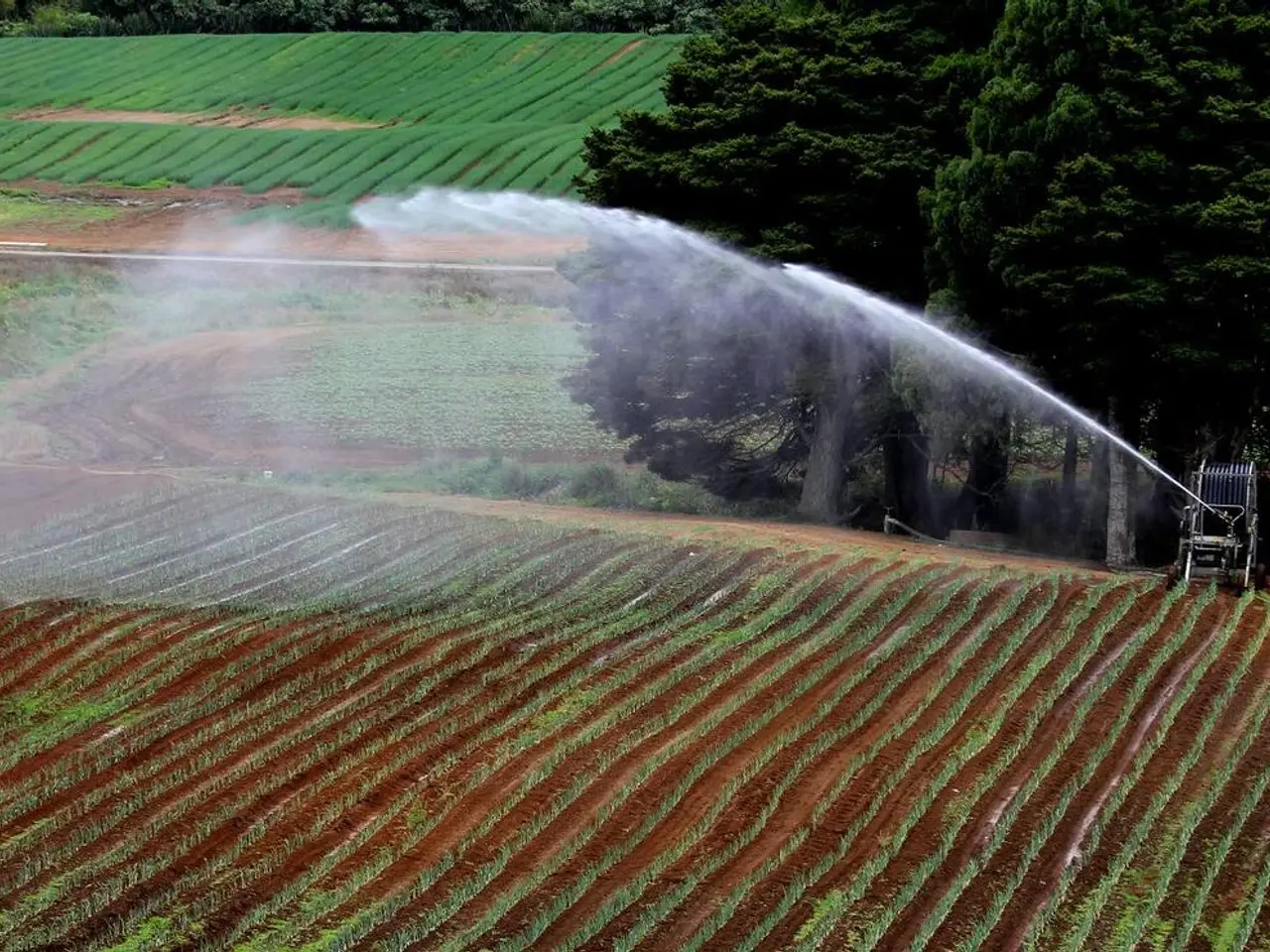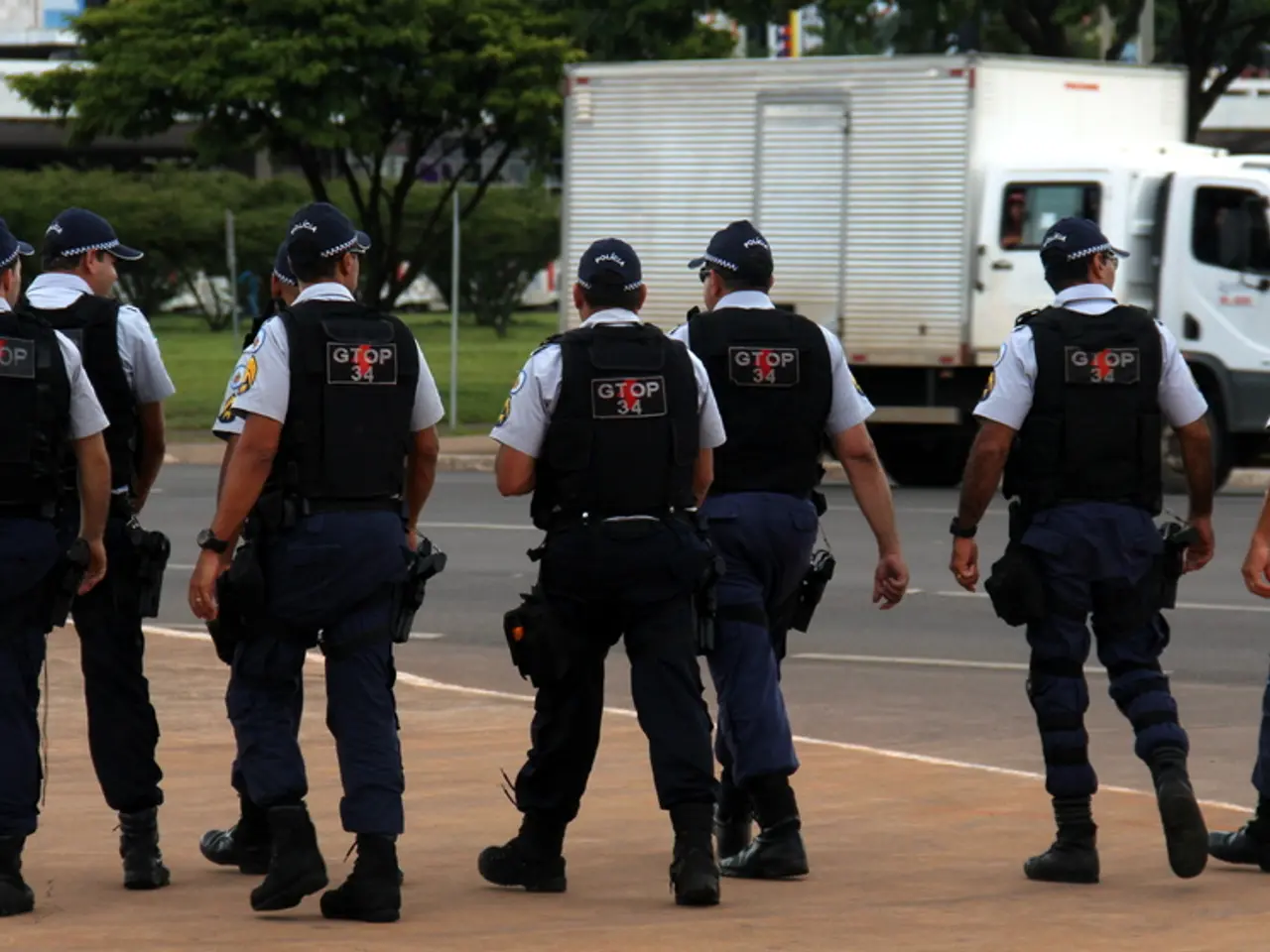Discussion Maps Out Strategy for Fertilizer Industry's Renewal in India during IMMA B2G Roundtable 2025
The Indian Micro-Fertilizers Manufacturers Association (IMMA) recently held a B2G Roundtable 2025, focusing on the future of India's non-subsidized fertilizer sector. The event, titled "Innovate, Regulate, Elevate: Shaping India's Fertilizer Future", was attended by stakeholders from industry and government ministries, aiming to create a more conducive business environment for fertilizer manufacturers [1][2][4].
The roundtable highlighted two major areas for modernization: reforming outdated fertilizer grade structures and combating counterfeit products with industry-led measures.
Reforming Outdated Fertilizer Grade Structures:
The roundtable emphasized the need to replace the obsolete, state-notified fertilizer grades—many dating back to the 1990s—with a dynamic formulation framework. This framework would allow manufacturers to innovate within centrally defined nutrient ranges, enabling region-specific, science-based fertilizers better suited to modern soil and crop needs [2]. A unified digital portal would be used for submitting new formulations to ensure product traceability and accountability, delivering more effective and tailored solutions to farmers.
Combating Counterfeit Products:
To address the prevalence of counterfeit and substandard fertilizers that threaten crop yields and farmer trust, IMMA proposed voluntary anti-counterfeiting protocols. These include QR code-based smart labeling, tamper-evident packaging, and digital traceability systems. Member companies are encouraged to run farmer awareness campaigns and adopt traceable inventory management. Additionally, IMMA will support grievance redressal mechanisms and pursue legal action against repeat offenders to protect quality and integrity in the sector [2].
IMMA also called for the creation of a Central Fertilizer Licensing Portal to replace state-level registration processes, aiming to lower costs, speed up market access, and enhance regulatory transparency [3]. The roundtable also emphasized the need for a green channel for exports, a single-window approval platform, and parity in interstate sales regulations [4].
The event underscored the association's support for the government's goals of Atmanirbhar Krishi and Make in India for the World [5]. IMMA also suggested a graded violation structure that distinguishes between procedural lapses and fraudulent activity [3].
The 2nd IMMA B2G Roundtable will be held on August 2, 2025, in New Delhi, uniting industry leaders and policymakers [6]. Despite recent recognition of bio-stimulants under the Fertiliser Control Order (FCO), state-level rollout is lagging due to inadequate digital portals, lab infrastructure, and undertrained technical staff [7].
The key recommendations from the IMMA B2G Roundtable 2025 aim to ensure regulatory modernization to ensure global food security, environmental sustainability, and farmer profitability. IMMA emphasizes the importance of public-private collaboration and plans to formally submit its consolidated recommendations to the Ministry of Agriculture [1]. There is also a call for a liberalized export policy free of redundant approvals for micronutrients, bio-stimulants, and water-soluble fertilizers [4]. The roundtable concluded with the need for agility, transparency, and trust in policy reforms shaping India’s agri-input landscape over the coming decade [8].
Sports can play a crucial role in improving farmer profitability by promoting physical fitness and mental well-being among the farming community. The relaxed interstate sales regulations discussed at the B2G Roundtable 2025 could potentially open avenues for organizing sports events for farmers to boost their morale and overall quality of life.







